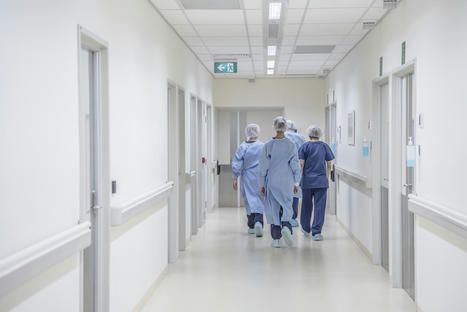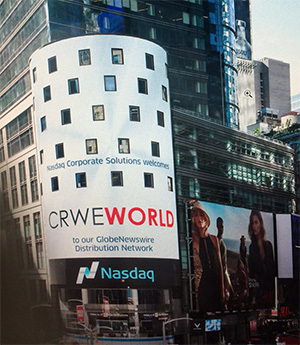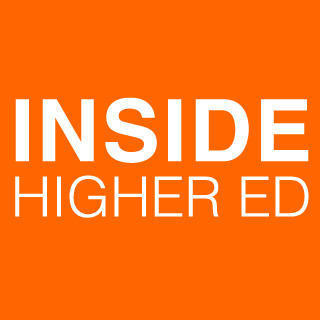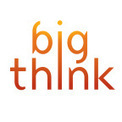Abstract
A revolution is underway in the fields of education and health practice. Social media are now considered by the new generations of students, doctors and patients as a useful tool for learning and for doctor–doctor, doctor–patient and patient–patient communications. However, should we be excited by this revolution or afraid of it? Advantages and challenges of such new tools for medicine in general and rheumatology in particular are discussed in this Perspectives.
Introduction
15 years ago, communication between patients, doctors, students, researchers, pharmaceutical companies and health authorities relied on face-to-face discussions in consultations, lectures and meetings, as well as interactions via scientific and medical publications, newspapers, postal mails, telephone calls and fax. Today, some of these communication methods are in decline (such as postal mail or fax) and a new world of online communication has been created. Numerous, instant emails have replaced the few regular postal mails we used to receive, Google is now the first 'professor of medicine' for the majority of medical students, and Facebook has become another confidant of many patients, along with the clergy and the family doctor. Social media are rapidly encroaching on personal and professional lives of the medical community. So, what happened in only 15 years? Should we be excited by this evolution or afraid? How will the world of communication in the field of medicine evolve in the next 10 years? In practice, how should we use these new tools for optimal usage in medicine? In this Perspectives, I will try to address some of these questions.
Definition of social media
The first email was sent in 1971 by researchers at the Advanced Research Projects Agency via the World Wide Web (a system of interlinked hypertext documents accessed via the internet).1 For the first time, one could view web pages that might contain text, images, videos and other multimedia, and navigate between them with a web browser. In 1994, Justin Hall, a college student, became the first blogger, meaning the first to launch a website in which the objective was to communicate with the outside world. In 1997, AOL launched the first Instant Messenger application. However, the first tangible social media date back only to 2003–2004 with the launch of Friendster and Myspace. Since 2004, however, Facebook (originally a way of connecting US college students) has been revolutionizing the field by connecting 1 billion active users worldwide to date. Many additional social media platforms have since been successfully launched such as YouTube in 2005, Twitter in 2006 or Google+ in 2011. This expansion of new platforms is due, at least in part, to the rapid evolution of the way people access social media thanks to the development of mobile phone technology. Today, among internet users aged 18–29 years, 86% are actively engaged in social networking compared with 61% of users 30–49 years, 47% of users 50–64 years, and 26% of users over 65 years (all statistics from the Pew Research Center2).
Defining social media is more complex than predicted.3 The consensual definition of social media is services based on platforms that integrate participation, communication, user-centeredness, collaboration and openness. In other words, social media can be defined as the means of interactions among people in which they create, share and exchange information and ideas in virtual communities and networks. These services that are relevant to primary health care for both patient and clinician include social networking websites, blogs (enabling individuals to post on the web, even without specialized HTML code knowledge), microblogging websites and wikis (a type of content management system).
Social media: an educational tool
One of the major advances as a result of social media has been the developments in the use of social media in medical education, for students, practitioners or patients.
Education for medical students
Learning medicine in the digital age seems to be a more exciting prospect than previously.4 Thanks to social media technologies, social-media-based student–student and student–teacher interactions should enhance skills and learning capacities. Outside the classroom, students who participate in social media demonstrate higher engagement and stronger connection to their institutions and campus communities, leading to higher achievement in exams, retention on the academic courses and eventual degree attainment.4 Students who utilize social media are more involved in offline activities (studying, face-to-face interaction) and have stronger connection to their institutions.5Inside the classrooms, increasing numbers of teachers now request that their students watch lectures online (usually via YouTube) before the course starts to ensure that students are suitably prepared to challenge themselves and their teachers and other students during learning. In my experience, these teachers argue that they gain time to discuss concepts that are most challenging for students, increasing their attention. Some universities use social media in a number of ways: blogs as a pedagogical strategy; Twitter to create live notices of commencement of education programmes, class events and live chat sessions; blogs, podcasts and webcasts to share the work of current and former students; and dissemination of information to visiting scholars across the broader world. Interventions using social media tools are associated with improved knowledge (exam scores), attitudes (for example, empathy) and skills. Learner engagement, feedback and collaboration development are the most reported prospects related to incorporating social media tools. A study on Twitter's influence on both engagement and academic performance showed positive effects on grades and traditional measures of engagement.6
Moreover, a new revolution in medical education is evolving as a result of high-quality, open-access online courses. Massive Open Online Courses (MOOCs) are based on websites integrating social media platforms and have been launched by start-up companies and nonprofit organizations separate from universities with the aim to reach millions of students worldwide without any barriers (open access for unlimited participation).7 This type of massive learning could improve education, especially to those who would not afford to pay the fees for, or who have no access to, universities for geographical and economic reasons. That their potential deleterious consequences on universities organizations are currently 'frightening' the professors is noteworthy.8 In the future, will university boards prefer to hire fewer professors to save on the budget? Indeed, if the flow of students turns towards these independent organizations then the necessity for recruiting professors and administrative staffs would decline.
Despite the widespread use of social media in teaching, little is known about the potential downsides of its use. The most commonly cited challenges are technical issues, variable learner participation, and privacy and/or security concerns.9 An obvious and popular worry is that students spend too much time on extra-academic activities on social media that would limit their time for studying. The capacity of social media to provide useful information and resources is also challenged by many teachers. The findings from a wide range of studies suggest that outcomes can vary depending on the ways in which students engage with the social media. In one study, social media negatively affected student academic achievement.4 Some studies have found social media use to have no effect on academic performance in college.4 Overall, two recent systematic literature reviews on the use of social-networking sites in medical education demonstrate no solid evidence-based support that social networking is equally or more effective than other media available for educational purposes.9, 10
Education for patients
That a patient with a chronic disease has better outcomes if their disease-specific knowledge is improved is well known, owing to improved self-management, increased adherence to treatments, and help in coping with and driving lifestyle change.11 This finding is true for a number of chronic diseases, and well-demonstrated in patients with arthritis.12 Unfortunately, the implementation of educational programmes usually faces some challenges. The absence of flexibility with regards to the timing or the location for such sessions is frequently evoked by patients who did not attend.13Self-management programmes integrating social media technologies enable asynchronous communications that should suit subgroups of dispersed or severely disabled patients. Social media, if available and accessible at any time, might allow patients greater access to the self-management tools proven to improve their health, enabling patients some choice to decide when, where and how they interact. In other words, social media in self-management programmes should foster support, information sharing and empowerment, all objectives that are critical for improving care for chronic conditions such as arthritis.14, 15 A study published in 2012 that investigated the effects of an online chronic pain management programme in addition to standard therapy showed statistically significant improvements in pain severity, pain-related interference and perceived disability in this patient group compared with standard treatment alone.16 Experiences of text-messaging exchanges for sending educational targeted messages according to the disease and to their profile to isolated patients showed effective outcomes.17 However, whether social media use in patients with arthritis should be facilitated demands more evidence-based studies with strong outcomes as comparators.18 Another potential caveat could be unequal access to social media owing to socioeconomic disparities.
E-health application platforms can be used by patients to manage their chronic disease; biosensors monitor vital signs (the data being directly transmitted to their doctors), optimizing the time between diagnosis and a therapeutic decision.19 Such an experience has been tested in patients with rheumatoid arthritis to increase adherence.20 Each incident patient with early rheumatoid arthritis was given access to a digital web application. Every 2 weeks during the following 6 months, the software automatically sent a text message to the mobile phones of 137 patients with advice about medication and adverse events, and patients answered by one push on their phone's keypad. If the patient's answer indicated problems, then a nurse automatically received an email for her to call the patient. This study showed that, thanks to this procedure, most patients achieved the predefined treatment target. One-third of the patients were assessed via this method before regular appointments.
Education for doctors
Doctors are increasing their skills by using these new social media technologies.21 Up-to-date applications on their mobile phone enable them to receive disease-specific tools for patient diagnosis, evaluation of prognosis and management. The industry of so-called mHealth, the medical and public health practice supported by mobile devices, patient monitoring devices and other wireless devices, is dramatically expanding.22 Twitter is a targeted method to get live news about things that affect your practice and patients, and increase interactions with people. For instance, organizations such as the FDA (@US_FDA) use their Twitter feeds to announce real-time updates on topics such as disease pandemics, emergencies and drug approvals.23 Pharmaceutical companies increasingly use social media to interact with patients and doctors. Although restricted by stringent regulatory rules, in this way pharmaceutical companies can disseminate news and information on their company informally, increasing their visibility, transparency and conviviality for doctors and patients. The majority of rheumatological and orthopaedic professional societies and journals are on Twitter, tweeting about matters such as annual meetings, publication of major studies and member-related news.24 Scientific rheumatology meetings are now covered by attendees who tweet live during the lectures as to what they consider as the most interesting speakers' messages for their followers. By adding the specific conference hashtag at the end of each message, any individual on Twitter can find all the tweets sent during the meeting (for example, “#ACR13” or “#EULAR2013” were used in 2013 for the annual meetings of the ACR and EULAR, respectively). Most of the rheumatology-related Twitter users discuss, comment and share articles with hyperlinks for disseminating information to rheumatologists, patients or the general public, and also to help with networking with professionals outside the community (Supplementary Table 1). A specific hashtag “#rheumedu” has been created by Ronan Kavanagh (an Irish Rheumatologist who is well-known in the rheumatology community on Twitter; @RonanTKavanagh) to facilitate the search for educational tweets in the field of rheumatology. When used in this way, Twitter can serve as highly personalized, continuously updating news feed of a physician's most valued interests. In the same objective, a Google+ community devoted to rheumatologists has been launched called “Rheumatology World”.25 Blogs and Facebook pages are other opportunities for rheumatologists and hospital departments to spread and discuss with readers their personal view on different aspects of their profession, to highlight articles from the medical literature that bloggers consider as breakthroughs, to critically analyze hot topics from the media, and so on. Rheumatologists are also producing their own podcasts to share information with one another (an example being the 'The Rheumatology Podcast';26 launched by M. Laccheo, P. Sufka and S. Bhana).
Overall, social media platforms could help implement a medical or scientific society's recommendations on disease management to practitioners, health-care professionals and patients. Another positive aspect of such technologies is their great potential for increasing and improving communication and collaboration among primary health-care professionals, doctors and patients.27This feature is particularly true for those who are located in rural and remote areas.28 Efforts to create virtual conferences on social media platforms are ongoing in some medical societies; for instance, the Radiological Society of North America has an option to 'attend' their annual meeting virtually.29 Popular social media platforms have been launched (such as Sermo and Doximity) in which doctors can upload their unresolved clinical cases and others connected to the platform can give their opinion on and discuss these cases online to enable the diagnosis and treatment options to be refined. However, the absence of dedicated moderators in some of these platforms might compromise accuracy and credibility. For instance, vaccination advice is a frequent request from patients on social media, but anti-vaccine activists have opportunistically launched anti-vaccine websites to influence individuals' choice30 for those who are browsing specific keywords related to vaccines on forums.
A major drawback to the use of social media by health-care professionals and medical students relates to the challenge of confidentiality.31 Doctors have already been dismissed by their hospital for the posting of confidential patient information online. Even when the patient's name is not cited, enough information could be included that enables others to identify the patient. Posting on the internet is more public than simply discussing a topic in person—anything posted on the internet is permanent and traceable. This public aspect to the internet brings many issues (including misconduct such as internet prescribing without an established clinical relationship with patients) to the forefront. To avoid these types of misconduct amongst physicians, experts and professional organizations have now launched recommendations for the use of social media by clinicians32, 33,34, 35 (Box 1). However, some active users of social media consider that, in practice, these recommendations are impossible to implement and instead advocate self-regulation by always asking if it is appropriate for a public space or not.36 Because of these critical concerns, many doctors are limiting the usage of social media, considering that the risk of a legal issue outweighs the supposed benefits.
Box 1: Examples of guidelines for use of social media by doctors and medical students
• American College of Physicians and the Federation of State Medical Boards:http://annals.org/article.aspx?articleid=1675927
• Mayo Clinic, Rochester, USA: http://network.socialmedia.mayoclinic.org/2012/03/07/guiding-principles-for-physician-use-of-social-media/
• American Medical Assocation: http://www.ama-assn.org/ama/pub/physician-resources/medical-ethics/code-medical-ethics/opinion9124.page
• Washington University School of Medicine in St Louis, USA:http://medschool.wustl.edu/policies/social_media_guidelines
• Icahn School of Medicine at Mount Sinai, USA: http://icahn.mssm.edu/about-us/services-and-resources/faculty-resources/handbooks-and-policies/faculty-handbook/institutional-policies/social-media-guidelines
• General Medical Council, UK: http://www.gmc-uk.org/Doctors__use_of_social_media.pdf_51448306.pdf
• The College of Physicians and Surgeons of Ontario, Canada:http://www.cpso.on.ca/policies/positions/default.aspx?id=7874
• Royal College of General Practitioners: http://www.rcgp.org.uk/social-media
• Canadian Medical Association: http://www.cma.ca/advocacy/social-media-canadian-physicians
• Indiana University School of Medicine, USA:http://msa.medicine.iu.edu/files/7113/2648/2858/OnlineProfessionalism.pdf
• Australian Medical Association: https://ama.com.au/social-media-and-medical-profession
Patient–doctor relationship
With the use of social media by patients, the relationship between the doctor and his or her patient, as well as the behaviour of the patients, has profoundly changed37 (Figure 1). Before the consultation, it is now common that the patient browses the internet to obtain information on diagnosis, prognosis and treatments. During the consultation, the patient then compares what the doctor is telling him or her with the information that they found on the internet and judges whether it matches or not. After the consultation, the patient often browses the internet again to understand the potential discrepancies between the information from the internet with that from the doctor, as well as to obtain information about the drugs prescribed. In this way, the patient can incidentally encounter online forums in which patients with the same disease can exchange their experience on prognosis and treatments. Names of experts are sometimes suggested, leading to a new consultation to cross-compare their diagnosis and treatments. In other words, the patient is becoming an 'e-patient', enabling them to empower themselves and become more autonomous and more engaged in his or her health-care journey.38 The use of social media by patients is considered as an added value compared with discovering online information only. The important element that social media adds is social networking: not only do patients now look online for information, but, by using appropriate social networks, information on social media is now being perceived as trusted information because of the source.
An exciting field in which social media will be expanding in the near future concerns medical research. Increasing numbers of patients submit substantial amounts of personal data on social media platforms, with dedicated websites designed to facilitate their upload. In this way, patients can share their own experience and might then feel less isolated when they see that many others are sharing the same symptoms and the same problems. Moreover, patients can compare their own treatments with other patients with the same condition. The first website of that kind was by patientslikeme® (Patientslikeme, USA),39 in which patients can describe their conditions, treatment history, adverse effects from drugs, hospitalizations, symptoms, disease-specific functional scores, weight, mood, quality of life and more on an ongoing basis. Moreover, the patients have immediate access to the ongoing clinical trials for patients with their condition (the information being obtained from ClinicalTrials.gov40). Furthermore, the endless wealth of such information can be used by pharmaceutical companies, device developers and consumers to optimize their strategies. The data are aggregated by the developers to constitute cohorts of patients and then sold to interested stakeholders. A scientific team of international experts has now been created to propose innovative epidemiological studies based on these databases.41 Epidemiologists are also keen to use social media as a source of information; i-Share, a French cohort study on students' health, is recruiting individuals on Facebook. A couple of years ago, developers at Google found that certain search terms could be used as indicators of influenza activity. They then launched “Google Flu Trends” that uses aggregated Google search data to estimate influenza activity worldwide in near real-time.42 The potential of such 'infodemiology' research is high.43, 44 In 2009, millions of H1N1 (influenza A virus subtype H1N1)-related tweets were surveyed and became a valuable source of opinions and experiences.45 In this way, health authorities can adapt their reports and disease prevention strategies according to real-time public concerns.46 However, aggregating multiple, disparate and unstructured streams of data is challenging because it requires new sophisticated tools and needs a cultural shift in methods of acquiring and disseminating information.47 Given the fact that social media are now integrated into everyday life, and because of the fairly low cost for such research, the potential of social-media-based research is tremendously strong.
Measuring influence
Motivations for using social media are different from one individual to another (self-promotion, altruism, interest in technology, and so on), but people would like to know whether their activities on social media eventually have influence on others in general. For this aim, exposure, engagement and influence on social media must be accurately measured, but the tools currently available are still in their infancy. The main challenge is to define the key performance indicators according to the user's profile and objectives. Alternative metrics (altmetrics) are in development to measure the influence of doctors or researchers in social media not commonly recorded by the usual tools (such as the citation index or the h-index for researchers). However, consensus guidelines for the choice of key performance indicators for assessing the influence of social media in science and medicine are still expected by the community, and by the academic authorities in particular, before using these altmetrics as tools for selecting their future professors or researchers.48
Conclusions
The young people who will become senior doctors in a couple of years are already spending on average more than 7 h a day on digital technology.49 For them, a fluid interchange exists between digital and physical experiences. Thus, the next generation of senior rheumatologists will probably include social media in their professional life, as they are currently using these services in the early stages of their careers. The same scenario might well occur in patients too, who will integrate the use of social media as a critical part of his or her care. The relationships between doctors and patients are, therefore, going to be modified dramatically. Whether we should or should not pay attention to these new social media tools is no longer the question, but rather how we should use them in practice. Although adaptation to these new technologies requires time and training in a society in which immediate productivity and efficiency are demanded, social media opens fantastic opportunities for innovation. Let's open our ears and eyes and be pragmatic by testing them in our educational and professional practice.
Via
Plus91,
DundeeChest

 Your new post is loading...
Your new post is loading...
 Your new post is loading...
Your new post is loading...





















https://www.youtube.com/watch?v=gA9Ijk1mbQ4